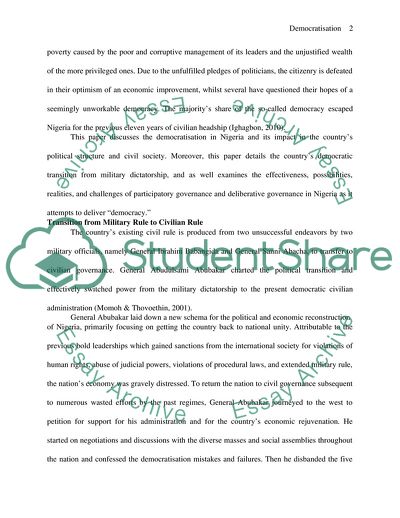Cite this document
(Impact of Democracy In Nigeria: Democratization Term Paper, n.d.)
Impact of Democracy In Nigeria: Democratization Term Paper. https://studentshare.org/politics/1770319-impact-of-democracy-in-nigeria-democratization
Impact of Democracy In Nigeria: Democratization Term Paper. https://studentshare.org/politics/1770319-impact-of-democracy-in-nigeria-democratization
(Impact of Democracy In Nigeria: Democratization Term Paper)
Impact of Democracy In Nigeria: Democratization Term Paper. https://studentshare.org/politics/1770319-impact-of-democracy-in-nigeria-democratization.
Impact of Democracy In Nigeria: Democratization Term Paper. https://studentshare.org/politics/1770319-impact-of-democracy-in-nigeria-democratization.
“Impact of Democracy In Nigeria: Democratization Term Paper”. https://studentshare.org/politics/1770319-impact-of-democracy-in-nigeria-democratization.


